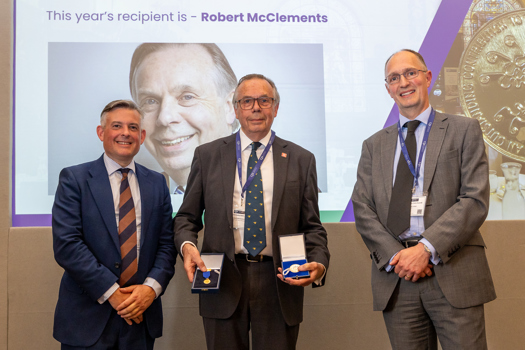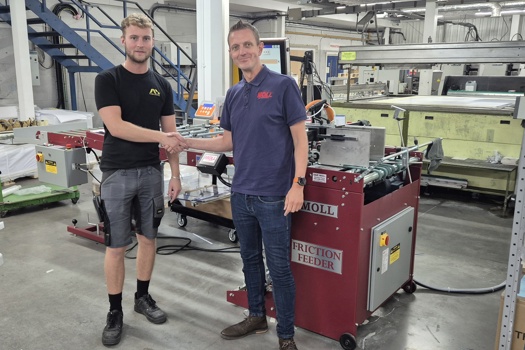A three-year, €4m (£3.6m) investment has transformed Sun's existing Frankfurt site into a production environment more akin to a food or pharmaceutical plant.
Chief executive Rudi Lenz attended the ribbon-cutting ceremony and stated: "It shows the world and, most importantly, our customers that we are investing for the future."
Workers wear hairnets and protective clothing, access to the plant is via double-airlock doors to prevent atmospheric contamination, and the raw materials used undergo inspection to ensure compliance with the EU's strict food contact regulations. Ink does not leave the building unless it is packed in its final container.
Felipe Mellado, chief marketing officer, said: "We have to be sure that no material we use will migrate at any other level than is absolutely safe for the consumer, and we have to make the inks in an environment where quality and consistency is fully guaranteed."
"Safety is absolutely non-negotiable for the consumer," he added.
Dr Bernhard Fritz, product manager for sheetfed systems, explained that Sun Chemical had also adopted elements of the HACCP (Hazard Analysis Critical Control Points) directive when developing the facility, which has a production capacity of 2,000 tonnes each year.
"This type of ink making requires production processes that are not common in the printing ink industry. This is why we call it a white tile plant," he said.
The range of SunLit, SunPak and SunCure inks made at Frankfurt has been specifically developed for different types of packaging application, depending upon the degree of sensitivity involved.
Sun Chemical has also produced a best practice guide for customers. "It's a perfect marketing concept for our customers to allow them to differentiate and compete in a global market," Fritz added.










